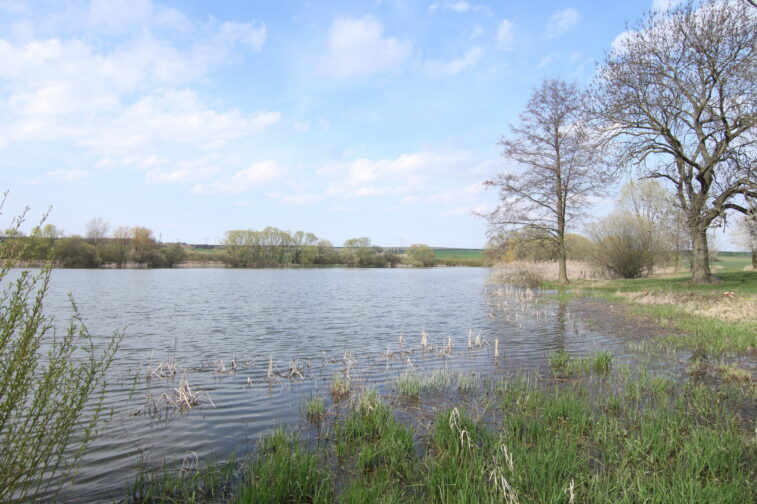For visitors
There is a quiet zone around the pond for birds, fish and other animals, so please be quiet and respectful. Vehicles cannot be parked anywhere other than the designated area at the pond access. There are also pastures nearby that might attract your pets. Please keep an eye on them to avoid any unpleasantness. What you bring in, you take out. If you want to build a fire, a fire pit is available. If you want to fish (catch and release mode), please inquire in advance at www.crs-sportovnirybolov.cz or on FaceBook. Not possible without prior arrangement.
What’s behind the name
The name Polský (Polish) Pond is explained by Václav Kočka in his work Dějiny Rakovnicka (The History of the Rakovník Region). He writes that in the 11th century, the sparsely or uninhabited area West of Prague was populated by Poles who came to Bohemia as captives of Bretislav I, Duke of Bohemia, who captured the Polish city of Gniezno near Krakow during his 1066 campaign. Rousínov was, according to Kočka, established during Břetislav I’s reign. The captives the Duke brought from his victorious Polish campaign were from around the Giecz castle (Hedč in Czech) and from Red Ruthenia. These people populated the region. And many local names refer to their land of origin: Hedčany, Hedecko, Krakov, Polský (Polish) pond and the former Polskýovčín (Polish sheepfold). Renowned Czech operatic tenor Karel Burian, born in the nearby Rousínov, used to go fishing to Polský Pond.
Plants and animals
Polský Pond is the largest body of water in the Zhoř area. Stretching on 4.3 hectares, the pond is surrounded by ecologically valuable orchards and riparian forest providing shelter to numerous animal species. Over recent years, 59 bird species were spotted in the area (a big thank you to the R.O.S Fénix club!) Large birds of prey, western marsh harrier, Montagu’s harrier are regularly observed in the area. For this reason, we try to maintain a quiet zone around the pond. We also strive for synthetic fertilizer-free land cultivation around the pond to reduce the negative impact on the local ecosystem and water quality.


